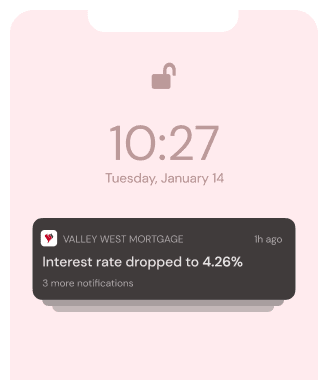We can bet you’ve flipped a coin, but have you flipped a house?
High priced homes are exactly what house flippers are looking for. Why? Because high priced homes turn out a more profitable result. Flipping houses is a trend that has recently re-started during the better parts of the housing bubble. A flip occurs when a person has purchased and sold the home within a year. Financing was a lot easier back then compared to what it is now, so investors were buying cheap homes and flipping them. Now, as pocket friendly priced houses are more scarce, investors are forced to buy the more expensive homes. Though this may have seemed like something that would slow down the flipping process, according to a CNBC mortgage article by Diana Olick, house flippers are finding this method to be more lucrative. The return on a flipped house has gone up from 24 percent last year (2014), to 36 percent this year (2015).
Olick also tells us that “Nevada and Florida, where the share of distressed homes are still relatively high, are still seeing the most house flipping action. Chicago IL, Dayton OH and Baltimore MD offer some of the best gross returns.”
The downside to flipping homes, that has to be taken into consideration before venturing into such a big project, is the possibility that home flippers could quite possibly lose everything they are investing in. If you buy a property that you plan to invest in and find the cost of renovation is something you can’t afford, then you’re stuck with a house that you can’t sell. You may be able to sell the house to another home flipper, but you’re not going to get all of your investment back. An even worse situation would be where you’ve done everything you can and still can’t sell the home, because of the location or other factors. You could be looking at paying the cost for the home, the renovations, and any new upgrades you may have already done and never even see a profit returned.
When you decide that flipping a home is the right move for you, there are a few things you need to consider before you start purchasing materials. If the home is older, you may be forced to bring the electrical wiring up to code. Homes that were built in the late 1950’s and 1960’s, were in fact built to code. That code however, was set during the same time period. As the years clicked by, building codes have changed a number of times. The codes are updated every time a new discovery is made that could result in structural damage, fire damage or simply put, the home could collapse at any moment. Even if you’re remodeling your existing home, you’re going to need to update all of your electrical to the current building codes. We’re not talking about just one section of your home. The entire home will need to be rewired. This also goes for the plumbing and any insolation you have in your current home. Commercials on television and radio make remodeling your home sound so easy. In some case’s it really can be. If you have an older home though, you will have a few hurdles to overcome first.
Mold is another factor that you need to consider when you decide to flip a house. In Las Vegas, and other warm cities, the mold removal industry has seen a recent spike in business. A small leak from your bathroom faucet could possibly end up causing more damage than you would think. Molds are a kind of fungus that can grow on wood, concrete, bread, oranges, or any surface that provides a suitable combination of temperature, moisture and food. Molds feed on nutrients on the surface of wood – they do not eat or weaken the wood itself.
When buying a home, to flip or just to live in, you’re going to need a home inspection. Most inspections will identify any issues the home currently has. This includes mold damage, faulty wiring practices and building code violations.
In order to flip a house you have to be sure that the market is right. By that we mean, the housing market. You want to try and buy your investment property at a time when your investment will return the best profit. The idea is to buy a house for a low value, reconstruct and fix it up, make it livable and give it some eye appeal. After jazzing up the property, you sell the property and ideally because you’ve put so much work into the property, you sell the property for a higher amount than what you paid for the house and its repairs. It can be a risky but rewarding business. Maybe flipping homes could be a new hobby for you.

Instant notifications for your scenario
Let's do it⏰ Your offer will be delivered to your inbox in less than a minute!